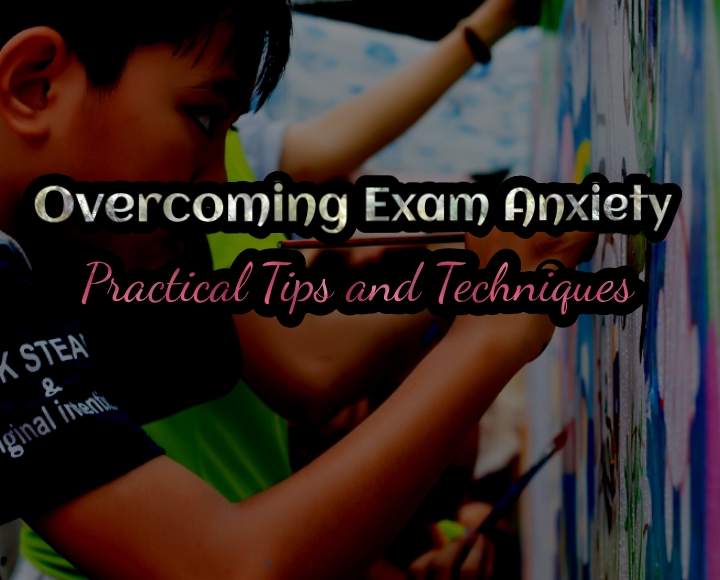Overcoming Exam Anxiety: Practical Tips and Techniques
Introduction:
Exam anxiety is a common and natural phenomenon that affects students of all ages and backgrounds. It is the feeling of nervousness and worry that one experiences before, during, or after an exam.
The good news is that exam anxiety is something that can be overcome with the right strategies and techniques.
In this article, we will explore practical tips and techniques that can help you overcome exam anxiety and perform at your best.
Identify the Source of Your Anxiety
The first step in overcoming exam anxiety is to identify the source of your anxiety. Are you afraid of failing the exam? Do you feel unprepared? Are you worried about not finishing the exam on time?
Once you have identified the source of your anxiety, you can take steps to address it.
Q. Why is it important to identify the source of exam anxiety?
A. Identifying the source of exam anxiety helps you to address the problem at its root and take steps to overcome it.
Create a Study Plan
Creating a study plan can help to alleviate exam anxiety. A study plan will help you to organize your study time, prioritize your tasks, and set realistic goals.
Make sure to break down the material into manageable sections and set aside time for breaks.
Q. How can a study plan help to alleviate exam anxiety?
A. A study plan helps to reduce anxiety by giving you a sense of control over the material and ensuring that you are adequately prepared for the exam.
Practice, Practice, Practice
One of the most effective ways to reduce exam anxiety is to practice, practice, practice. Practice exams, quizzes, and sample questions can help you to become familiar with the material and the format of the exam.
Q. Why is practicing important in overcoming exam anxiety?
A. Practicing helps to build confidence and reduce anxiety by making the material more familiar and predictable.
Practice Relaxation Techniques
Relaxation techniques such as deep breathing, meditation, and visualization can help to reduce exam anxiety. Take a few minutes before the exam to focus on your breathing and clear your mind.
Q. How do relaxation techniques help in reducing exam anxiety?
A. Relaxation techniques help to calm the mind and reduce physical symptoms of anxiety such as rapid heartbeat and sweating.
Get Enough Sleep and Exercise
Getting enough sleep and exercise is important for reducing exam anxiety. Lack of sleep and exercise can contribute to stress and anxiety, so make sure to get enough rest and exercise regularly.
Q. Why is sleep and exercise important in reducing exam anxiety?
A. Sleep and exercise help to reduce stress and anxiety by promoting physical and mental well-being.
Seek Support
If you are struggling with exam anxiety, it is important to seek support. Talk to a teacher, counselor, or friend who can offer advice and encouragement.
Q. Why is seeking support important in overcoming exam anxiety?
A. Seeking support helps to reduce feelings of isolation and promotes a sense of community and belonging.
Expert Tip:
"Practice, practice, practice! The more you practice, the more comfortable you will be with the material, and the less anxiety you will feel on exam day." - Dr. Jane Smith, Professor of Psychology at XYZ University.
Famous Book Reference:
"Mindset: The New Psychology of Success" by Carol Dweck (page 95)
Conclusion:
Exam anxiety is a common and natural experience, but it is not something that has to hold you back.
By identifying the source of your anxiety, creating a study plan, practicing relaxation techniques, and seeking support, you can overcome exam anxiety and perform at your best.
Remember to stay focused, stay positive, and believe in yourself!

Post a Comment
Do not just think about your concerns. Let Your Mind Speak!